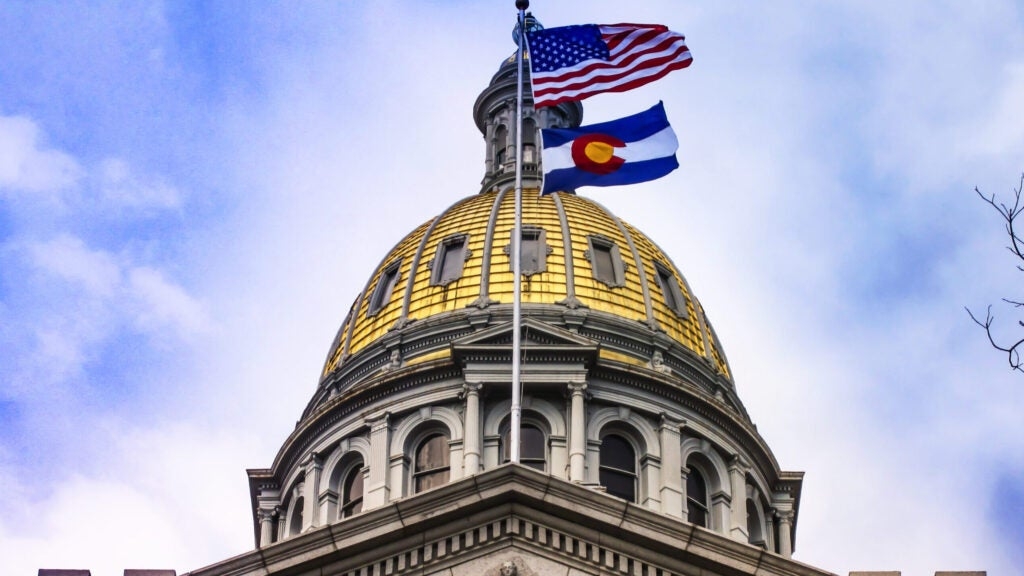State Lawmakers Pass Six PERA-Related Bills in 2024 Legislative Session
Legislation & Governance

Photo credit: Getty Images
May 15, 2024
That’s a wrap—Colorado’s 2024 legislative session has come to an end.
Each session, legislators introduce hundreds of new bills, and it’s not unusual for some of them to pertain to PERA and its members. This year, lawmakers proposed nine PERA-related bills.
By the end of the session on May 8, six of those nine bills had passed and were either signed into law or will be sent to Gov. Jared Polis for action.
Below is a summary of the bills that passed. Find information on the other proposed bills.
Working after retirement
Lawmakers approved two bills that expand the number of PERA retirees who can return to work without a reduction in their benefits, both of which Gov. Polis signed into law.
Under current law, all PERA retirees may work up to 110 days or 720 hours per calendar year for one or more PERA employer(s) without a reduction in their retirement benefits. In addition to the 110 days for all retirees, employers in the School and Denver Public Schools (DPS) divisions, as well as each state college or university, can designate up to 10 retirees who are permitted to work up to 140 days or 916 hours per calendar year without reductions to their PERA benefits. House Bill 1044 will allow districts with more than 10,000 students to designate an additional retiree for each thousand students over 10,000.
Also, rural school districts can declare a critical shortage of qualified teachers, school bus drivers, food service workers, school nurses, or paraprofessionals and hire PERA retirees to fill those positions without having their retirement benefits reduced. Senate Bill 99 adds principals and superintendents to the list of qualified positions.
RELATED: Understanding the Financial Impact of Working After Retirement
Actuarial study
House Bill 1427 calls for the State Auditor, in cooperation with PERA, to enlist an independent actuarial firm experienced with public pensions to conduct a comprehensive study comparing the cost and effectiveness of the PERA Defined Benefit Plan to alternative plan designs, as well as providing an analysis of certain aspects of PERA current defined benefit and defined contribution plans.
As Colorado’s public workforce evolves, it’s important that Colorado PERA remain flexible enough to meet the membership’s changing needs. This study will help policymakers assess PERA’s continued value in recruiting and retaining a highly qualified public workforce in the years ahead.
READ MORE: Lawmakers Pass Bill to Refresh Study on Value of PERA’s Defined Benefit Plan
Other PERA provisions
Other bills that passed the Legislature made minor adjustments to PERA membership provisions by expanding the definition of “State Trooper” for the purpose of PERA benefits.
Senate Bill 169 expands the definition of State Trooper for the purpose of PERA benefits to include duly sworn employees of the Division of Fire Prevention and Control in the Department of Public Safety whose duties include structural or wildfire management, wildfire response, live-fire training, or wildfire leadership, as determined by the executive director of the department.
Senate Bill 186 expands the definition of State Trooper for the purpose of PERA benefits to include county coroners and deputy coroners.
Another bill, Senate Bill 13, seeks to establish salary parity among publicly funded lawyers in the criminal justice system. The introduced version of the bill also included a provision related to PERA, but this was removed from the final bill passed by the Legislature.
FILE UNDER
Related Posts
Subscribe to PERA On The Issues
Stay informed by subscribing to our newsletter. Youʹll receive one email every two weeks that contains a summary of all the latest news.

